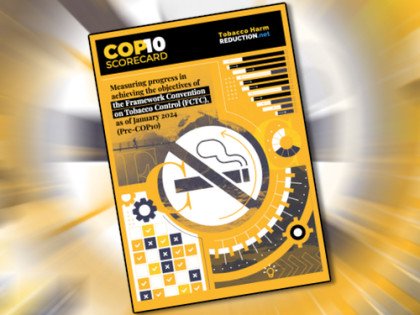JUUL Labs announced a Bluetooth-enabled device last year that aimed to “lock out” teens from being able to use it. The company didn’t explain how it would work, but promised it would be launched this year. It hasn’t linked the two initiatives.
The “Track & Trace program” has been created to discover how the brand’s products end up being used by teenagers when it is only for sale to those aged 21 or over. It relies on an old school serial number being entered into a website. JUUL says it plans on opening an investigation into every entry.
The company says it will use the information to “enhance” its secret shopper program and approach retail store managers to educate them.
To get the public, teachers and the police to engage, JUUL is targeting online adverts at them in the Houston area, informing them how they can report the serials on confiscated devices.
Ashley Gould, the company's Chief Administrative Officer, said: "It's important to note that the pilot is an opportunity for us to learn how the technology is working and optimize the technology.”
“It's not just at the retailer level. It's a whole process through the supply chain to track that device and find out if everyone who is supposed to be scanning it is scanning it, and the software that we've created to track that serial number through the supply chain to the retail store is working.”
Gould concluded: “The only way we're going to know that is when someone puts in the serial number and we see if we have all the data we need to track it."
The program can’t hope to achieve much other than a public display of effort on its part. Like cigarettes, the majority of underage buyers are likely to use legal intermediaries to purchase online or through retail outlets.
The operation simply lends credence to the Food and Drug Administration’s fictitious ‘epidemic’ like JUUL did when it withdrew certain flavoured pods from sale and killed off its social media accounts.
If JUUL wanted to do something proactive, it could spend more money and effort countering the deluge of lies emanating from the FDA and anti-vape lobbying organisations.
Resources:
- JUUL reporting portal - https://www.juul.com/report
Dave Cross
Journalist at POTVDave is a freelance writer; with articles on music, motorbikes, football, pop-science, vaping and tobacco harm reduction in Sounds, Melody Maker, UBG, AWoL, Bike, When Saturday Comes, Vape News Magazine, and syndicated across the Johnston Press group. He was published in an anthology of “Greatest Football Writing”, but still believes this was a mistake. Dave contributes sketches to comedy shows and used to co-host a radio sketch show. He’s worked with numerous start-ups to develop content for their websites.
Join the discussion
Be Vape Vigilant Success
The ‘Be Vape Vigilant’ national initiative has exposed more than 100 potential rogue vape traders says the UK Vaping Industry Association
The COP10 Scorecard
Dr Derek Yach and Tobacco Harm Reduction.net have released a COP10 Scorecard report, drawing upon recent World Health Organization (WHO) reports to assess progress made by Parties to the Framework Convention on Tobacco Control (FCTC)
A Manifesto for Smokefree Beginnings
The Smoking in Pregnancy Challenge Group has produced its fourth national report: “A Manifesto for Smokefree Beginnings”
European Parliament Endorses Smoking Cessation Tool
The European Parliament has endorsed vaping as a smoking cessation tool via its Subcommittee on Public Health, according to the World Vapers’ Alliance












